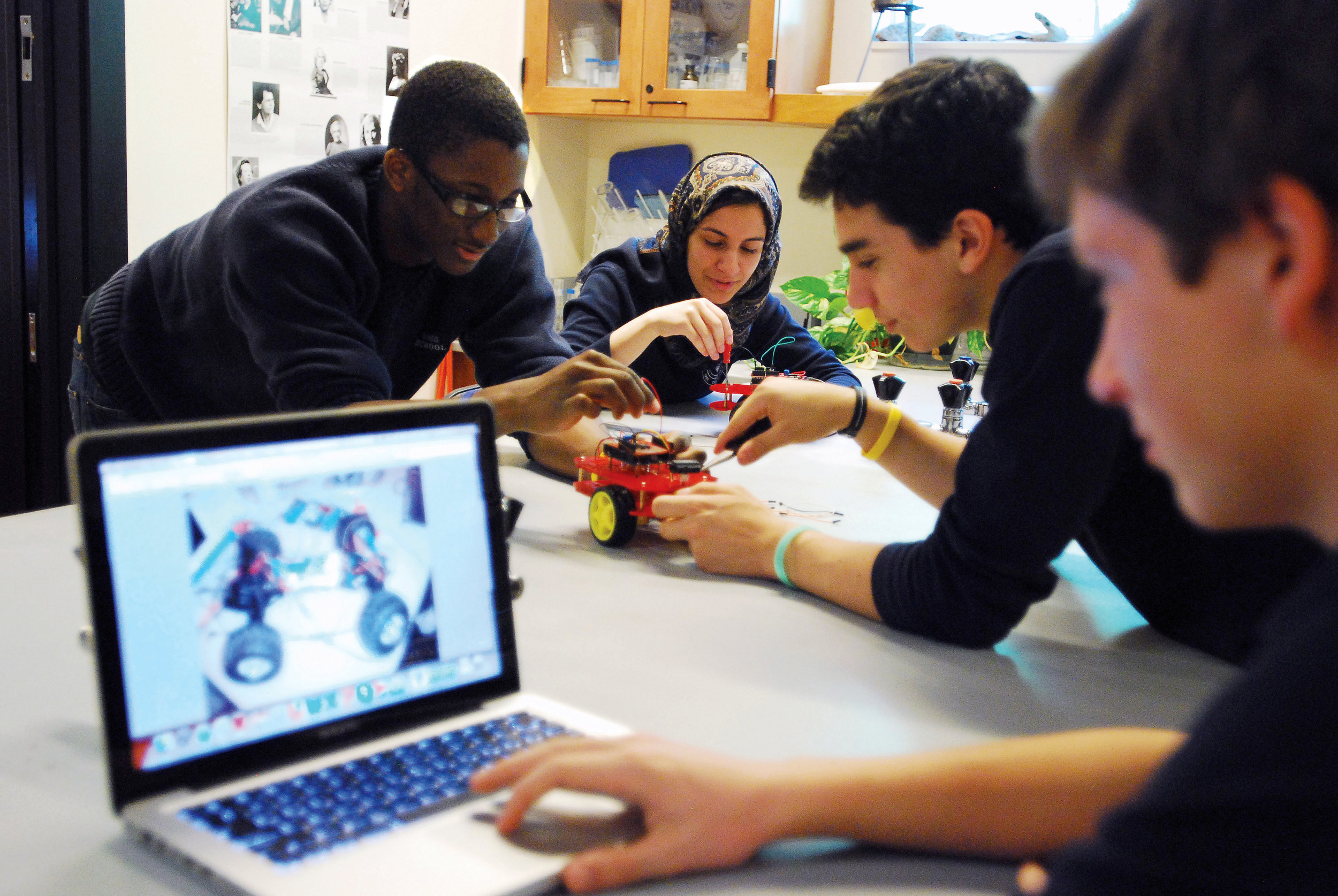Ross Model
At the core of Ross Learning System is a unique and comprehensive curriculum that fosters intercultural understanding, transdisciplinary problem solving, collaboration, and independent pursuit of personal interests and passions. Students work directly with emerging media and communication technologies, learning both how to use such technologies creatively and how to respond critically to the way media influences culture. Ross students are instilled with intellectual curiosity and creative energy to help them become lifelong learners. More importantly, they develop a multifaceted worldview that enables them to understand current dilemmas in a broad historical context and to anticipate the challenges they will encounter in the new global era. The ability of students to triangulate their understanding of past, present, and future and synthesize information across disciplines are hallmarks of the integrated curriculum.
Spiral Curriculum
Ross teaches Cultural History chronologically, using it as a lens to examine other disciplines. The curriculum becomes an ascending spiral of historical events plotted from prehistory to the future, with the student educationally situated in the center of the expanding form. This vantage point allows multiple simultaneous and comparative views of the past and present. It also encourages students to consider local and national events—both past and present—in the context of world history.
Ethos
The Ross ethos informs the foundation of day-to-day interaction across Ross Institute and Ross Network Schools. From the mission of providing all children with the skills, values and sensibilities necessary to succeed in a 21st century global society, to Ross School's motto Know Thyself in Order to Serve, the Ross Core Values (Cooperation, Courage, Gratitude, Integrity, Mindfulness, Respect and Responsibility), central concepts of Whole Child for the Whole World and importance of the Learning Environment, Ross teachers immerse themselves and their students in an environment that is respectful, mindful of others and oriented to service beyond the campus. Ross students develop a social-emotional sensibility and a deep understanding of what it means to be responsible local and global citizens.
Pedagogy
At the heart of the Ross educational philosophy and practices is the belief that all students can become successful learners. Teaching methods are informed by a variety of tested psychological theories and pedagogical approaches, from Dr. Howard Gardner's theory of Multiple Intelligences to the latest developments in curriculum design and learning styles, including the research of Dr. Kurt Fisher and Harvard University's Mind, Brain, and Education Program.
It is the intent of Ross Institute to prepare children for meaningful lives, life-long learning and leadership in the global community. An innovative and integrated curriculum along with classroom learning, peer teaching, faculty mentoring, project-based learning, performance-based assessment and empowerment through technology work to ensure students will have the skills and values they need for the demands of the future.




